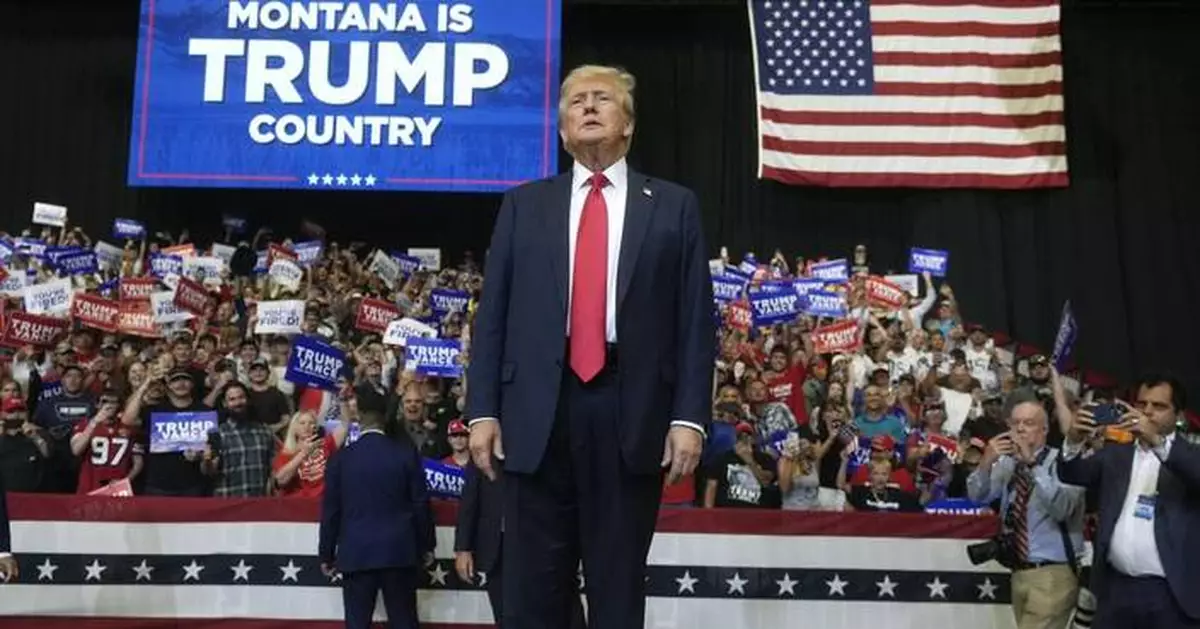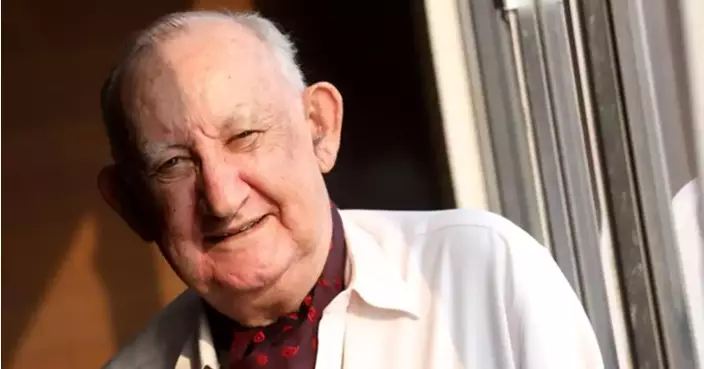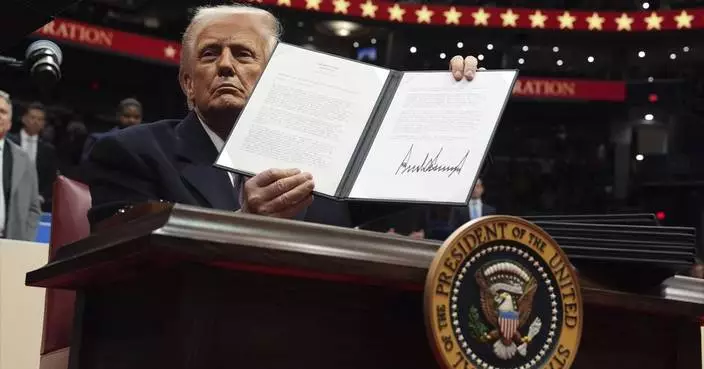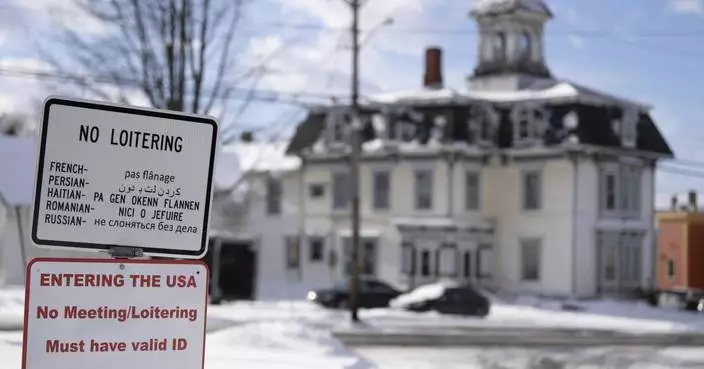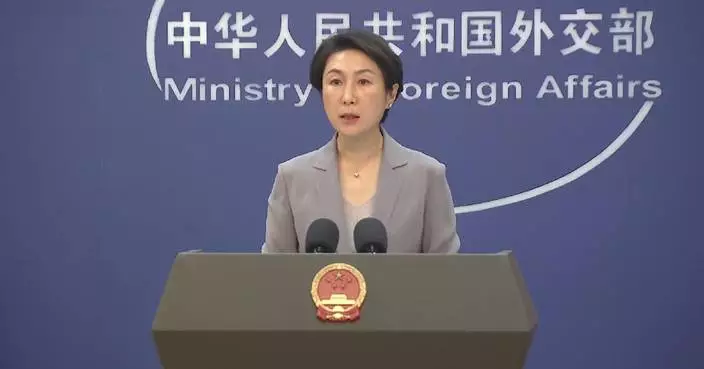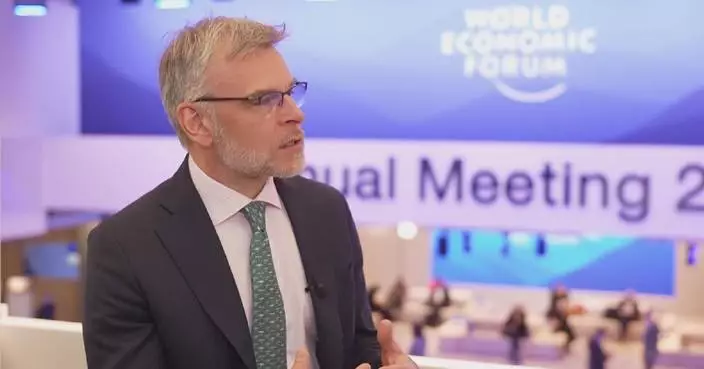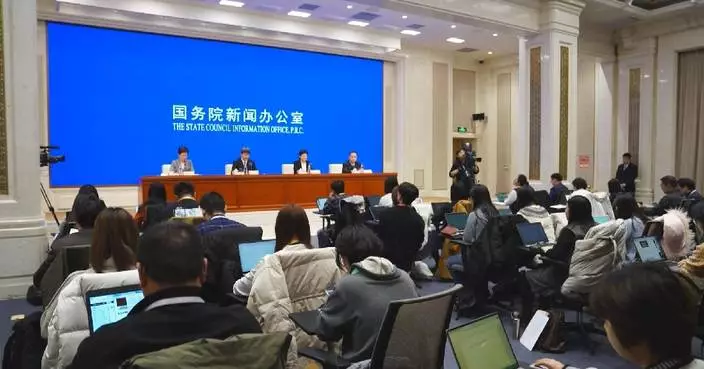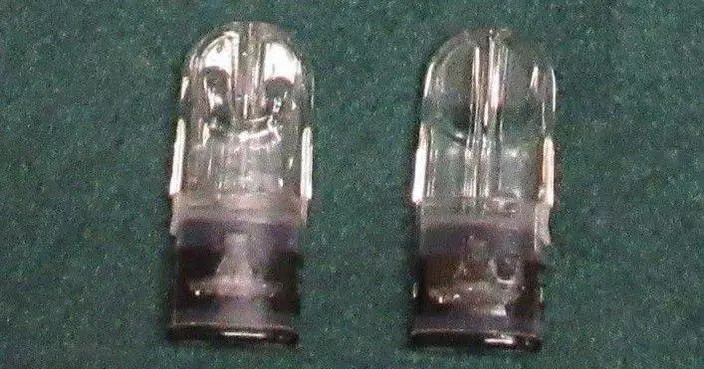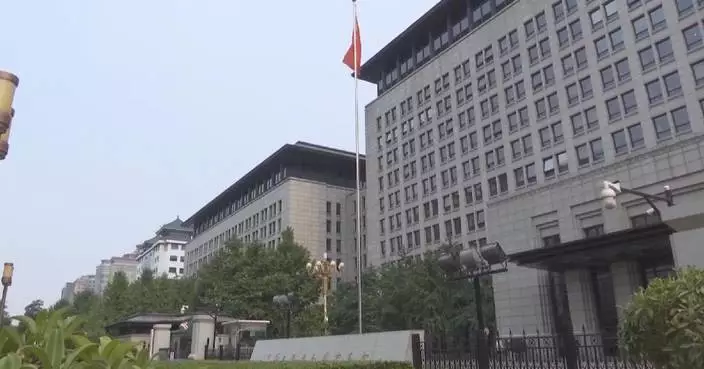WASHINGTON (AP) — The FBI is investigating allegations that sensitive documents from Donald Trump's presidential campaign were stolen in a cyber intrusion, as well as attempts to gain access to Vice President Kamala Harris’ campaign, days after the Trump campaign declared it had been hacked by Iran.
The FBI released a brief statement on the Trump matter reading, “We can confirm the FBI is investigating this matter.”
The Trump campaign provided no specific evidence of Iran’s involvement, but the claim came shortly after Microsoft issued a report detailing foreign agents’ attempts to interfere in the U.S. election in 2024. The report cited an instance of an Iranian military intelligence unit in June sending “a spear-phishing email to a high-ranking official of a presidential campaign from a compromised email account of a former senior advisor.”
Two people familiar with the matter said the Biden-Harris campaign was also targeted in the suspected Iranian cyber intrusion that is under FBI investigation. The people spoke on the condition of anonymity because they were not authorized to discuss the details of the investigation.
Politico reported Saturday that it began receiving emails on July 22 from an anonymous account. The source — an AOL email account identified only as “Robert” — passed along what appeared to be a research dossier the campaign had apparently done on the Republican vice presidential nominee, Ohio Sen. JD Vance. The document was dated Feb. 23, almost five months before Trump selected Vance as his running mate.
“These documents were obtained illegally” and “intended to interfere with the 2024 election and sow chaos throughout our Democratic process,” Trump campaign spokesperson Steven Cheung said.
At least three staffers in the Biden-Harris campaign were targeted with phishing emails, but investigators have uncovered no evidence the attempt was successful, one of the people said. The attempts came before President Joe Biden dropped out of the race.
The FBI began investigating that cyber incident in June and intelligence officials believe Iran was behind the attempts, that person said. Officials have also been in touch with tech companies in recent months about the possibility that people linked to the Trump and Biden-Harris campaigns were being targeted through email.
Harris' campaign said in a statement, “Our campaign vigilantly monitors and protects against cyber threats, and we are not aware of any security breaches of our systems.” It declined to address whether it had identified any state-based intrusion attempts.
Iran’s mission to the United Nations, when asked about the claim of the Trump campaign, denied being involved.
However, Iran long has been suspected of running hacking campaigns targeting its enemies in the Middle East and beyond. Tehran also long has threatened to retaliate against Trump over the 2020 drone strike he ordered that killed prominent Revolutionary Guard Gen. Qassem Soleimani.
In its report, Microsoft stated that “foreign malign influence concerning the 2024 US election started off slowly but has steadily picked up pace over the last six months due initially to Russian operations, but more recently from Iranian activity.”
The analysis continued: “Iranian cyber-enabled influence operations have been a consistent feature of at least the last three U.S. election cycles. Iran’s operations have been notable and distinguishable from Russian campaigns for appearing later in the election season and employing cyberattacks more geared toward election conduct than swaying voters.”
“Recent activity suggests the Iranian regime — along with the Kremlin — may be equally engaged in election 2024,” Microsoft concluded.

Republican presidential nominee former President Donald Trump arrives for a campaign rally in Bozeman, Mont., Friday, Aug. 9, 2024. (AP Photo/Rick Bowmer)
What's in a name change, after all?
The water bordered by the Southern United States, Mexico and Cuba will be critical to shipping lanes and vacationers whether it’s called the Gulf of Mexico, as it has been for four centuries, or the Gulf of America, as President Donald Trump ordered this week. North America’s highest mountain peak will still loom above Alaska whether it’s called Mt. Denali, as ordered by former President Barack Obama in 2015, or changed back to Mt. McKinley as Trump also decreed.
But Trump's territorial assertions, in line with his “America First” worldview, sparked a round of rethinking by mapmakers and teachers, snark on social media and sarcasm by at least one other world leader. And though Florida Gov. Ron DeSantis put the Trumpian “Gulf of America” on an official document and some other gulf-adjacent states were considering doing the same, it was not clear how many others would follow Trump's lead.
Mexican President Claudia Sheinbaum joked that if Trump went ahead with the renaming, her country would rename North America “Mexican America.” On Tuesday, she toned it down: “For us and for the entire world it will continue to be called the Gulf of Mexico.”
Map lines are inherently political. After all, they're representations of the places that are important to human beings — and those priorities can be delicate and contentious, even more so in a globalized world.
There’s no agreed-upon scheme to name boundaries and features across the Earth.
“Denali” is the mountain's preferred name for Alaska Natives, while “McKinley" is a tribute to President William McKinley, designated in the late 19th century by a gold prospector. China sees Taiwan as its own territory, and the countries surrounding what the United States calls the South China Sea have multiple names for the same body of water.
The Persian Gulf has been widely known by that name since the 16th century, although usage of “Gulf” and “Arabian Gulf” is dominant in many countries in the Middle East. The government of Iran — formerly Persia — threatened to sue Google in 2012 over the company’s decision not to label the body of water at all on its maps. Many Arab countries don’t recognize Israel and instead call it Palestine. And in many official releases, Israel calls the occupied West Bank by its biblical name, “Judea and Samaria.”
Americans and Mexicans diverge on what to call another key body of water, the river that forms the border between Texas and the Mexican states of Chihuahua, Coahuila, Nuevo Leon and Tamaulipas. Americans call it the Rio Grande; Mexicans call it the Rio Bravo.
Trump's executive order — titled “Restoring Names That Honor American Greatness” — concludes thusly: “It is in the national interest to promote the extraordinary heritage of our Nation and ensure future generations of American citizens celebrate the legacy of our American heroes. The naming of our national treasures, including breathtaking natural wonders and historic works of art, should honor the contributions of visionary and patriotic Americans in our Nation’s rich past.”
But what to call the gulf with the 3,700-mile coastline?
“It is, I suppose, an internationally recognized sea, but (to be honest), a situation like this has never come up before so I need to confirm the appropriate convention,” said Peter Bellerby, who said he was talking over the issue with the cartographers at his London company, Bellerby & Co. Globemakers. “If, for instance, he wanted to change the Atlantic Ocean to the American Ocean, we would probably just ignore it."
As of Wednesday night, map applications for Google and Apple still called the mountain and the gulf by their old names. Spokespersons for those platforms did not immediately respond to emailed questions.
A spokesperson for National Geographic, one of the most prominent map makers in the U.S., said this week that the company does not comment on individual cases and referred questions to a statement on its web site, which reads in part that it "strives to be apolitical, to consult multiple authoritative sources, and to make independent decisions based on extensive research.” National Geographic also has a policy of including explanatory notes for place names in dispute, citing as an example a body of water between Japan and the Korean peninsula, referred to as the Sea of Japan by the Japanese and the East Sea by Koreans.
In discussion on social media, one thread noted that the Sears Tower in Chicago was renamed the Willis Tower in 2009, though it's still commonly known by its original moniker. Pennsylvania's capital, Harrisburg, renamed its Market Street to Martin Luther King Boulevard and then switched back to Market Street several years later — with loud complaints both times. In 2017, New York's Tappan Zee Bridge was renamed for the late Gov. Mario Cuomo to great controversy. The new name appears on maps, but “no one calls it that,” noted another user.
“Are we going to start teaching this as the name of the body of water?” asked one Reddit poster on Tuesday.
“I guess you can tell students that SOME PEOPLE want to rename this body of water the Gulf of America, but everyone else in the world calls it the Gulf of Mexico,” came one answer. “Cover all your bases — they know the reality-based name, but also the wannabe name as well.”
Wrote another user: “I'll call it the Gulf of America when I'm forced to call the Tappan Zee the Mario Cuomo Bridge, which is to say never.”
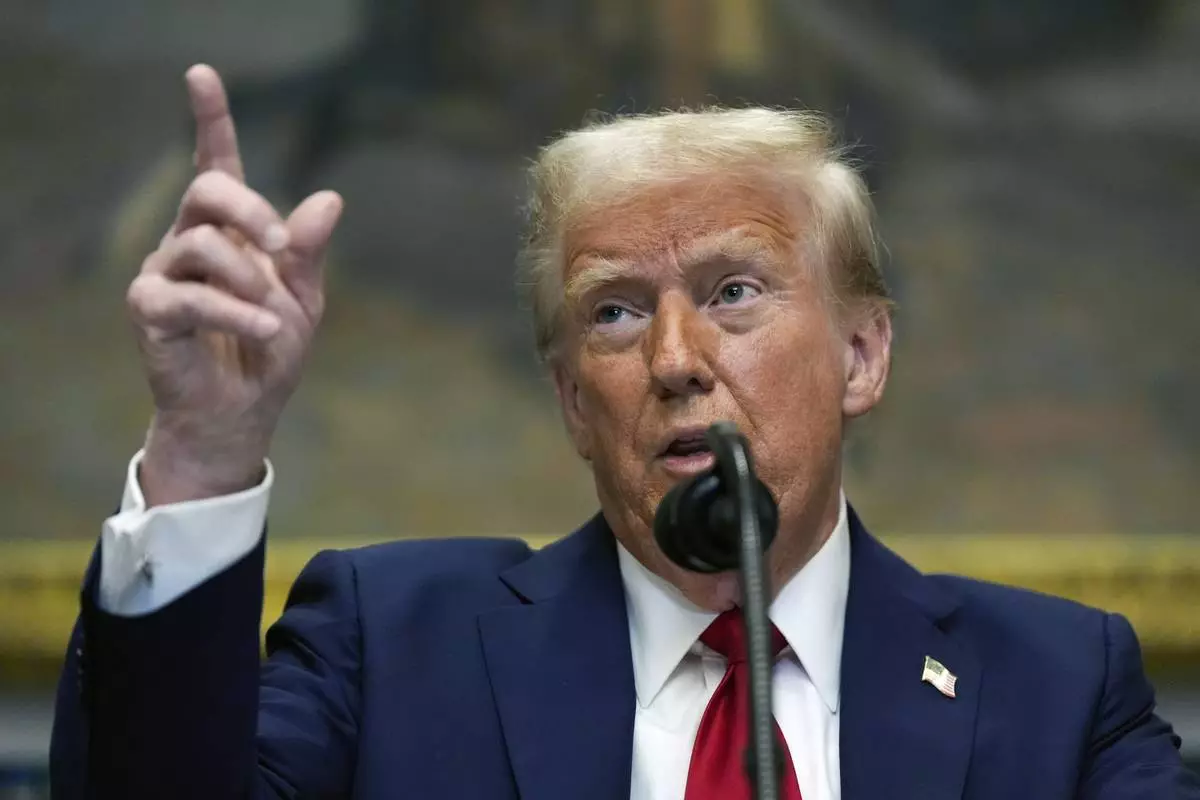
FILE - President Donald Trump speaks in the Roosevelt Room of the White House, Tuesday, Jan. 21, 2025, in Washington. (AP Photo/Julia Demaree Nikhinson, File)

FILE - Peter Bellerby, the founder of Bellerby & Co. Globemakers, holds a globe at a studio in London, Tuesday, Feb. 27, 2024. (AP Photo/Kin Cheung, File)

FILE - A boat is seen on the Susitna River near Talkeetna, Alaska, on Sunday, June 13, 2021, with Denali in the background. Denali, the tallest mountain on the North American continent, is located about 60 miles northwest of Talkeetna. (AP Photo/Mark Thiessen, File)

FILE - The water in the Gulf of Mexico appears bluer than usual off of East Beach, Saturday, June 24, 2023, in Galveston, Texas. (Jill Karnicki/Houston Chronicle via AP, File)



